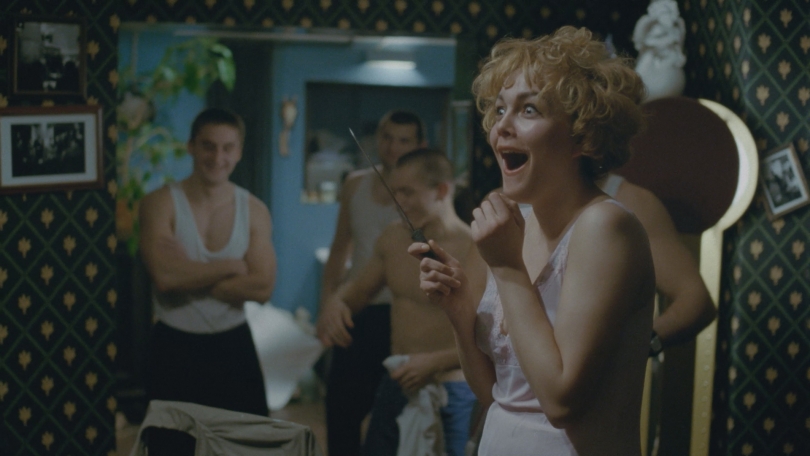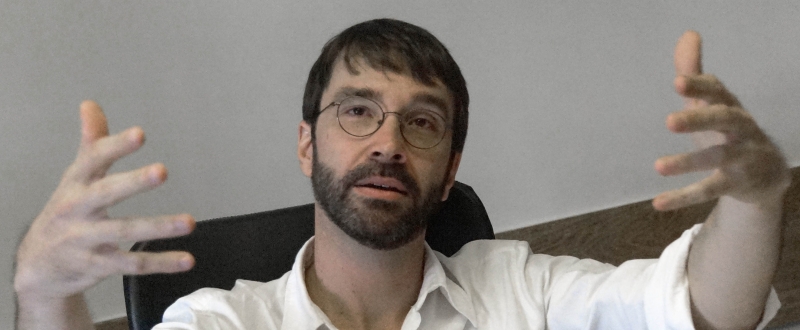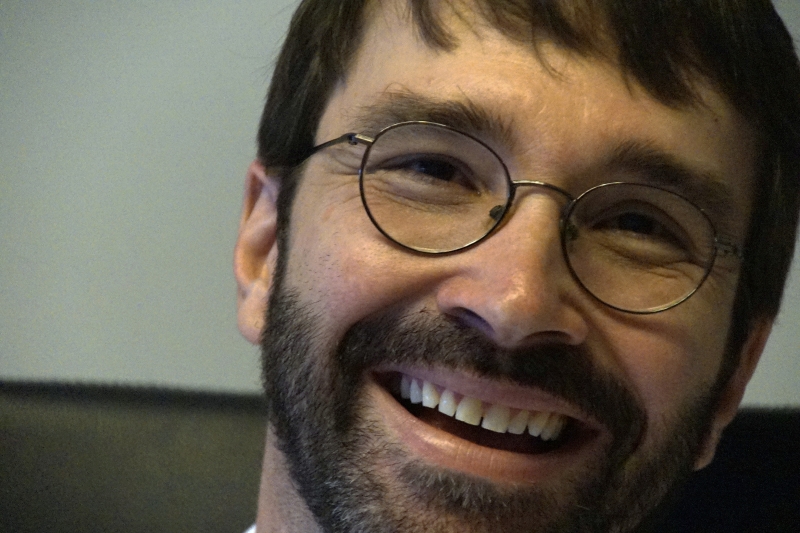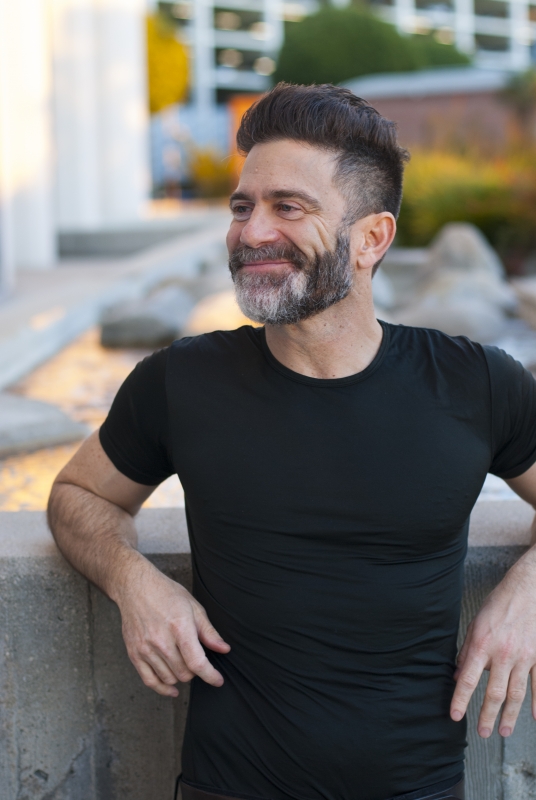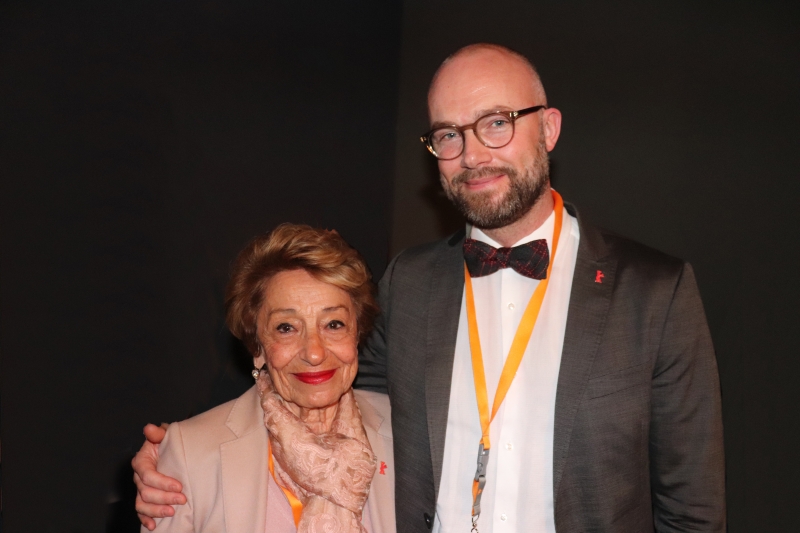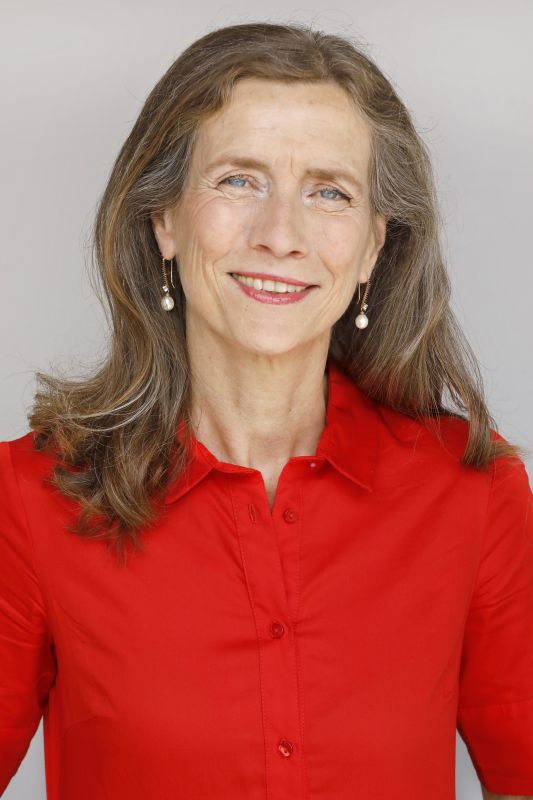|
|
||
|
Pro Tools
FILMFESTIVALS | 24/7 world wide coverageWelcome ! Enjoy the best of both worlds: Film & Festival News, exploring the best of the film festivals community. Launched in 1995, relentlessly connecting films to festivals, documenting and promoting festivals worldwide. Working on an upgrade soon. For collaboration, editorial contributions, or publicity, please send us an email here. User login |
Replicate Soviet: A post-socialist Heterotopia of DAU. Degeneratsia
(Vladimir Azhippo, Andrey Chuenkov © Phenomen Film) By YUNXI ZHANG "Communism is a religion," says Rabbi Adin Steinsaltz from the Hebrew University of Jerusalem whose philosophical voice-over will guide you through this 6-hour marathon (without break) - if you can manage to stay in the seat and not fall asleep before the first part ends. Me watching this DAU film is a pure accident, but then again I probably wasn’t the only one that was confused or misled by the reputation of DAU. Natasha - it turns out that DAU. Degeneratsia (DAU. Degeneration) is truly something special. While everyone in the world seems to focus on the debatable similarity with Pasolini's Salò, or the 120 Days of Sodom or on the high resemblance of DAU and The Truman Show, I'd like to talk about its audience participation and how sophisticated its spacial perception is based on my own cinematic experience.
In 1968 This is not a random number but the year when Lev Davidovich Landau died. The DAU project was set in the last 30 years of this Soviet genius physicist, only that time inside the film was fast-forwarded within its over 700 hours of footage during 3 years of filming. Divided into two parts, DAU. Degeneratsia is the longest one of the total 14 films so far - it took the director around two hours to build the setup in part one. By the time I almost settled with this film being a quasi-mockumentary capturing the degenerated love for vodka in the USSR of the 70s, Vladimir Azhippo who’s playing the role of a KGB curator takes the steering wheel, wielding the power of God through his obsession with super human experiment and beyond. Although the degeneration didn’t only start until then, it has penetrated the system long before everything happens - this manufactured period of time plays a role of prophetic allegory which we knew from history will have only one certain tendency. We're actually walking through a living archive while we're guided through DAU’s 1968. Should he be viewed as a communist "messiah" coming down to cleanse the degenerated vibe of the bourgeoisie? Would Azhippo still be the one who's behind all the interrogations, head-shaving, super soldier experiments and the final purge? Obviously, no one knows the answer, as all the performers were not acting out anyone else but themselves. Acting freely without a script, the most obscure part is that they have to act as themselves without actually being themselves. A collection of performance artsy acting was running a massive social behavior experiment - to build a totalitarian heterotopia in 6 hours then smash it into pieces. Experimental performance, the minimal editing and the fragmented micro-narratives tell the everyday story in the same way as we're shaping and living in the history of ourselves - if it wasn't for the Russian language, I would’ve felt as if I was watching a Dogme 95. But I was still asking myself how to explain the depth of the exposure I felt for this replicated "history," and why, why a replica ended up being so authentic.
(James Fallon, Dmitry Kaledin © Phenomen Film) The institute To simulate a perceptible time space back to the 1970s, the directors Ilya Khrzhanovskiy and Ilya Permyakov recreated the whole secret institute inside a mini-size Soviet Union in Kharkiv, Ukraine for this long-term film project instead of filming in a studio or a ready-to-use location. The institute that really existed over 40 years ago, now exists in the present, a time of post-socialism, where the decent are compromised, the beautiful are destroyed, the humane perish. But that’s not what made audiences leave the cinema or discomfited them, nor that it’s as real as a textbook of how totalitarianism and nationalism irretrievably dominate humanity. The DAU project - or better say the movement - broke the rules, the holy boundaries that separate theatrical and cinematic spaces by showing the stage itself yet still perversely preserved the invisible fourth wall for the audience - we simply can't appreciate it when the cinematic truthfulness becomes the realness, because we lost the psychological protection against whatever was happening in the simulated three-dimensional world of cinematic space the moment we knew it's all real. A number of cameras kept rolling day and night, recording every minute from every possible angle in 35mm film, in the end we would wonder if the directors had already lost the sense of boundary between social experiment on humanity with the initiative of nostalgia and the addiction to this playing God game in such a Soviet replica. It seems like a real-life alternative universe that would rarely exist in any film, before it’s even transformed onto the cinema screen - DAU is walking on the edge and testing audiences' bottom line. If a geographically existing Soviet cannot compensate Ilya Khrzhanovskiy's - he was the one who initiated DAU in the first place - nostalgic homesickness or feed their artistic ambition, what would happen?
(Viktoria Skitskaya © Phenomen Film)
Hyena and Pig Marina Abramović's close friend, a unique artist named Andrew Ondrejcak plays a psychologist of social behavior in the film, an outsider and visitor to DAU's institute, conducted behavioral research on an experimental group by observing the subjects tearing an intact piece of paper from a gigantic piece of white paper placed on the ground. Simple as the task for this experiment sounds, it still leaves him no deducted conclusion yet he only finds the behavior itself absolutely fascinating. I was wondering if this is also the true interpretation Ilya Khrzhanovskiy and Ilya Permyakov would give to their audiences. Maksim Martsinkevitsch, playing the leader of the experimental group and well known as a Russian neo-Nazi activist in real life, has been called "Hyena" by girls in the film. At the first group dinner with Andrew Ondrejcak, he humiliates this American by aggressively asking for his opinions on political questions, such as whether it bothers him to know about African Americans’ rights in the US. Disappointed by the answer, he labels Andrew immediately with "fag" and "gay". On the last night before Andrew leaves, Maksim and his group plot a prank to scare Andrew in the pigsty. They failed twice before eventually succeeding in harassing and traumatizing not only his character in the film but also the real Andrew. For seeking substitute or out of pure catharsis, the group trades a pig for a bottle of vodka, puts "shame" marks and the Star of David on it, drags it all the way from the pigsty to the dormitory dining room, teases it with a bowl of fruit, and then all of a sudden, stabs the pig in the neck with a kitchen knife before chopping off its head piece by piece. They do it because they feel like having pork for dinner. This was the moment I truly felt so visually and emotionally disgusted that I had to cover my eyes and tried not to let the pig's extremely desperate howl grate in my ears; this is where DAU is most close to the notorious 6-day-long Stanford prison experiment. Should I feel the pig’s pain and helplessness or share my hate and despise against the Nazis? If the pig doesn’t have a say because it can’t speak human language, do the other performers in the same room really have a choice when those with shaved heads have knives in their hands? How can pigs ever stand up and fight against the hyenas? If DAU is all about being "real," what is left for us to determine what is not "real?" Is DAU becoming a religion in the meantime? Playing with ambiguity is what is happening onscreen and onset. By doing so, it’s challenging every existing convention in the human world. But sometimes, it’s better not to test humanity. ⭐⭐⭐/5 stars Yunxi Zhang is a native Chinese and cineaste living in Berlin who came to Germany because of her passion and curiosity for film. Edited and published by Lindsay R. Bellinger at the behest of Yunxi Zhang. She also somewhat takes the blame for Yunxi's encounter with DAU. Degeneratsia and its six hour full-on cinematic experience. She recommended that Yunxi watch DAU. Natasha and then the wrong DAU ticket was purchased.
(Ilya Khrzhanovskiy, Ilya Permyakov © Berlinale 2020)
Crew
Written and directed by: Ilya Khrzhanovskiy, Ilya Permyakov Cinematography: Jürgen Jürges Montage: Ling Lee, Arttu Salmi, Marianne Kuopanportti Fennel Sound Design: Stefan Smith, Rob Walker, Alex Joseph Sound: Maksim Demydenko Production Design: Denis Shibanov Costumes: Lyubov Mingasitinova, Olga Bekritskaya, Elena Bekritskaya, Irina Tsvetkova Make-up: Jekaterina Oertel Casting: Vera Levchenko, Inna Schorr, Asya Smekalova Assistant Directors: Vera Levchenko, Inna Schorr Producer: Sergey Adonyev Co-producers: Svetlana Dragayeva, Kristina Voloschina, Alexandra Timofeeva, Susanne Marian Co-production:
Phenomen Ukraine, Kiew
Phenomen UK, London Phenomen Films, Moskau
World sales: Coproduction Office 13.03.2020 | Berlin's blog Cat. :
|
LinksThe Bulletin Board > The Bulletin Board Blog Following News Interview with IFTA Chairman (AFM)
Interview with Cannes Marche du Film Director
Filmfestivals.com dailies live coverage from > Live from India
Useful links for the indies: > Big files transfer
+ SUBSCRIBE to the weekly Newsletter Deals+ Special offers and discounts from filmfestivals.com Selected fun offers
> Bonus Casino
User imagesAbout Berlin Chatelin Bruno Chatelin Bruno |



















